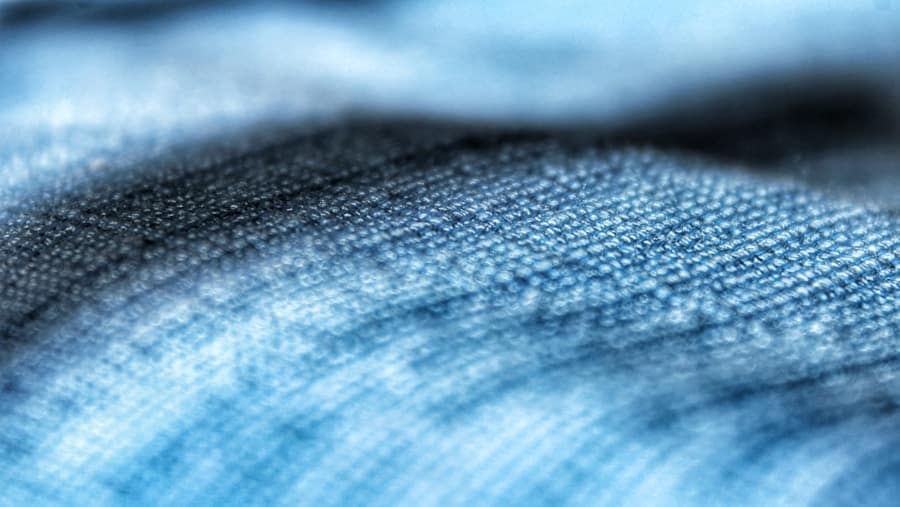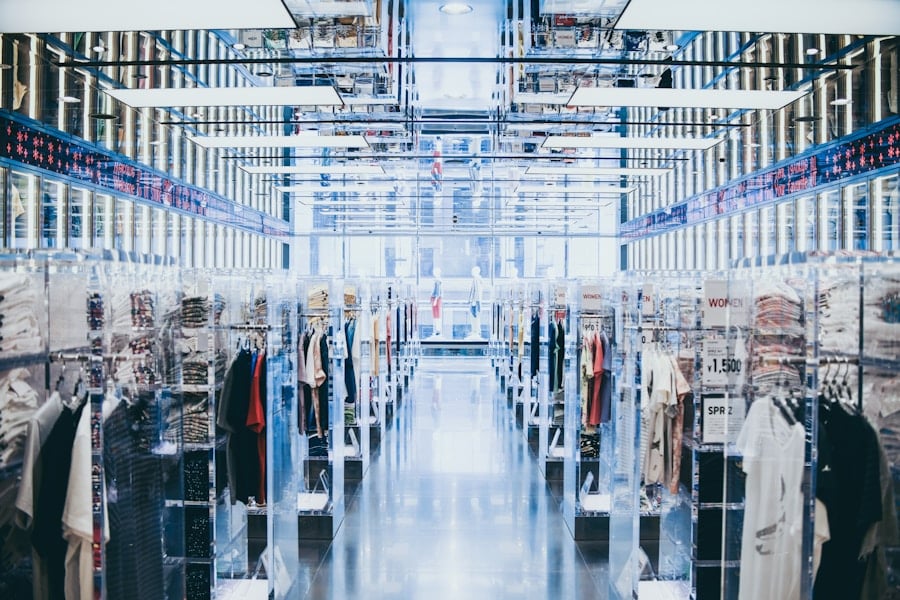The intersection of artificial intelligence (AI) and sustainable fashion represents a transformative shift in the industry, addressing pressing environmental concerns while enhancing efficiency and creativity. As the fashion sector grapples with its significant ecological footprint—ranging from water consumption to textile waste—AI emerges as a powerful ally in promoting sustainability. By leveraging advanced algorithms and data analytics, brands can optimize their operations, reduce waste, and create more environmentally friendly products.
This integration of technology not only fosters innovation but also aligns with the growing consumer demand for ethical and sustainable practices. The fashion industry is notorious for its rapid production cycles and trend-driven nature, often leading to overproduction and excessive waste. However, AI offers solutions that can mitigate these issues by streamlining processes and enabling more informed decision-making.
From design to distribution, AI technologies are being harnessed to create a more sustainable ecosystem. As brands increasingly recognize the importance of sustainability, the role of AI becomes pivotal in reshaping how fashion is conceived, produced, and consumed. This article delves into various aspects of AI’s impact on sustainable fashion, exploring its applications in design, supply chain management, customer experiences, material innovation, waste reduction, and ethical practices.
Key Takeaways
- AI is revolutionizing the fashion industry by making sustainable practices more accessible and efficient.
- AI-driven design and manufacturing processes are streamlining production and reducing waste in the fashion industry.
- AI-powered supply chain management is improving transparency and traceability, leading to more sustainable sourcing and production.
- Personalized customer experiences with AI are enhancing the shopping experience and promoting more conscious consumer choices.
- AI-enabled sustainable material innovation is driving the development of eco-friendly and innovative materials for fashion production.
- AI in waste reduction and recycling is helping fashion brands minimize their environmental impact and move towards a circular economy.
- Ethical and transparent practices with AI are ensuring that sustainable fashion initiatives are carried out with integrity and accountability.
- The future of AI in sustainable fashion holds the promise of even more advanced technologies and solutions for a greener and more ethical industry.
AI-Driven Design and Manufacturing Processes
AI is revolutionizing the design and manufacturing processes within the fashion industry by enabling designers to create more innovative and sustainable products. Through machine learning algorithms, AI can analyze vast amounts of data from consumer preferences, market trends, and historical sales patterns. This analysis allows designers to predict which styles will resonate with consumers, reducing the risk of overproduction.
For instance, brands like Stitch Fix utilize AI to curate personalized clothing selections for customers based on their preferences, significantly minimizing unsold inventory. Moreover, AI-driven design tools can assist in creating patterns and prototypes more efficiently. Programs like Adobe’s Sensei leverage AI to automate repetitive tasks such as color matching and fabric selection, allowing designers to focus on creativity rather than mundane details.
Additionally, generative design algorithms can propose multiple design variations based on specific parameters set by the designer, leading to innovative outcomes that might not have been conceived through traditional methods. This not only enhances creativity but also promotes sustainability by optimizing material usage and reducing waste during the manufacturing process.
AI-Powered Supply Chain Management

The complexities of supply chain management in the fashion industry are well-documented, with challenges ranging from sourcing materials to managing logistics. AI plays a crucial role in streamlining these processes by providing real-time data analysis and predictive insights. For example, AI algorithms can forecast demand more accurately by analyzing consumer behavior patterns, seasonal trends, and even social media sentiment.
This capability allows brands to adjust their production schedules accordingly, minimizing excess inventory and reducing the environmental impact associated with overproduction. Furthermore, AI enhances transparency within the supply chain by tracking materials from their origin to the final product. Blockchain technology, when combined with AI, can provide an immutable record of each step in the supply chain, ensuring that materials are sourced ethically and sustainably.
Brands like Everledger are pioneering this approach by using blockchain to verify the provenance of luxury goods, thereby fostering consumer trust and accountability. By integrating AI into supply chain management, fashion companies can not only improve efficiency but also uphold their commitment to sustainability.
Personalized Customer Experiences with AI
In an era where consumers increasingly seek personalized experiences, AI is at the forefront of transforming how brands engage with their customers. Through advanced data analytics, AI can gather insights into individual preferences and shopping behaviors, allowing brands to tailor their offerings accordingly. For instance, platforms like Zalando utilize AI algorithms to recommend products based on previous purchases and browsing history, creating a more personalized shopping experience that resonates with consumers.
Moreover, virtual fitting rooms powered by AI technology enable customers to visualize how garments will look on them without physically trying them on. Companies like ASOS have implemented augmented reality (AR) features that allow users to see how clothing fits their body type through their smartphones. This not only enhances customer satisfaction but also reduces return rates—a significant contributor to waste in the fashion industry.
By providing personalized experiences through AI, brands can foster deeper connections with consumers while promoting sustainable practices.
AI-Enabled Sustainable Material Innovation
The quest for sustainable materials is a critical aspect of reducing the fashion industry’s environmental impact. AI is playing a pivotal role in this area by facilitating the discovery and development of innovative materials that are both eco-friendly and high-performing. For example, researchers are using machine learning algorithms to analyze the properties of various natural fibers and synthetic alternatives to identify sustainable substitutes that meet performance criteria without compromising quality.
One notable example is the collaboration between Adidas and Parley for the Oceans, where AI is used to develop new materials made from recycled ocean plastics. By analyzing the properties of these materials through AI-driven simulations, Adidas can create high-performance athletic wear that aligns with its sustainability goals. Additionally, companies like Bolt Threads are utilizing AI to engineer lab-grown materials such as mycelium leather, which offers a sustainable alternative to traditional animal leather.
This innovative approach not only reduces reliance on resource-intensive materials but also opens new avenues for creativity in fashion design.
AI in Waste Reduction and Recycling

Waste reduction is a pressing concern in the fashion industry, where millions of tons of textiles end up in landfills each year. AI technologies are being employed to tackle this issue by optimizing production processes and enhancing recycling efforts. For instance, AI can analyze production data to identify inefficiencies that lead to excess waste during manufacturing.
By pinpointing these areas for improvement, brands can implement strategies that minimize waste generation. In addition to reducing waste during production, AI is also revolutionizing recycling processes. Companies like Worn Again Technologies are utilizing AI-driven sorting systems that can identify different types of textiles for recycling purposes.
These systems use computer vision technology to distinguish between various fabrics and their compositions, enabling more efficient sorting and processing of textile waste. By improving recycling rates through advanced technology, the fashion industry can significantly reduce its environmental footprint while promoting a circular economy.
Ethical and Transparent Practices with AI
As consumers become increasingly aware of ethical issues within the fashion industry—such as labor practices and environmental impact—AI offers tools for enhancing transparency and accountability. Brands can leverage AI-driven analytics to monitor their supply chains more effectively, ensuring compliance with ethical standards at every stage of production. For example, companies can use AI algorithms to assess supplier performance based on criteria such as labor conditions and environmental practices.
Moreover, AI can facilitate greater consumer awareness by providing detailed information about product origins and manufacturing processes. Brands like Everlane have embraced transparency by sharing information about their factories and sourcing practices with consumers. By integrating AI into their operations, these brands can offer real-time insights into their sustainability efforts while fostering trust among consumers who prioritize ethical consumption.
The Future of AI in Sustainable Fashion
Looking ahead, the potential for AI in sustainable fashion is vast and promising. As technology continues to evolve, we can expect even more innovative applications that further enhance sustainability within the industry. The integration of AI with emerging technologies such as blockchain and Internet of Things (IoT) will likely lead to more efficient supply chains and improved traceability of materials.
Additionally, as consumer expectations shift towards greater sustainability and ethical practices, brands will need to adapt by embracing AI-driven solutions that align with these values. The future may see an increase in collaborative efforts between tech companies and fashion brands aimed at developing cutting-edge solutions for sustainability challenges. Ultimately, the ongoing evolution of AI in sustainable fashion holds the potential not only to transform how we produce and consume clothing but also to redefine our relationship with fashion itself—making it more responsible, transparent, and aligned with the principles of sustainability.
In a related article, Unlock Your Creative Potential with the Samsung Galaxy Book Flex2 Alpha, explores how technology can enhance creativity and productivity in various industries, including fashion and textiles. Just like AI is driving innovations in sustainable fashion, the Samsung Galaxy Book Flex2 Alpha offers cutting-edge features that can revolutionize the way designers and creators work. By leveraging the power of technology, individuals can push boundaries and create more sustainable and innovative solutions in their respective fields.
FAQs
What is sustainable fashion and textiles?
Sustainable fashion and textiles refer to clothing and fabric materials that are produced in an environmentally and socially responsible manner, with a focus on minimizing the negative impact on the environment and promoting ethical labor practices.
How is AI driving innovations in sustainable fashion and textiles?
AI is driving innovations in sustainable fashion and textiles by enabling more efficient and sustainable production processes, such as optimizing supply chain management, reducing waste, and developing eco-friendly materials.
What are some examples of AI applications in sustainable fashion and textiles?
Examples of AI applications in sustainable fashion and textiles include using machine learning algorithms to predict consumer demand, optimizing production schedules to minimize energy consumption, and developing new materials with lower environmental impact.
How does AI contribute to reducing the environmental impact of the fashion industry?
AI contributes to reducing the environmental impact of the fashion industry by enabling more sustainable and efficient production processes, reducing waste, and promoting the use of eco-friendly materials through data-driven insights and innovations.
What are the potential benefits of AI-driven innovations in sustainable fashion and textiles?
The potential benefits of AI-driven innovations in sustainable fashion and textiles include reducing the industry’s carbon footprint, minimizing waste, promoting ethical labor practices, and meeting the growing demand for eco-friendly and socially responsible products.

